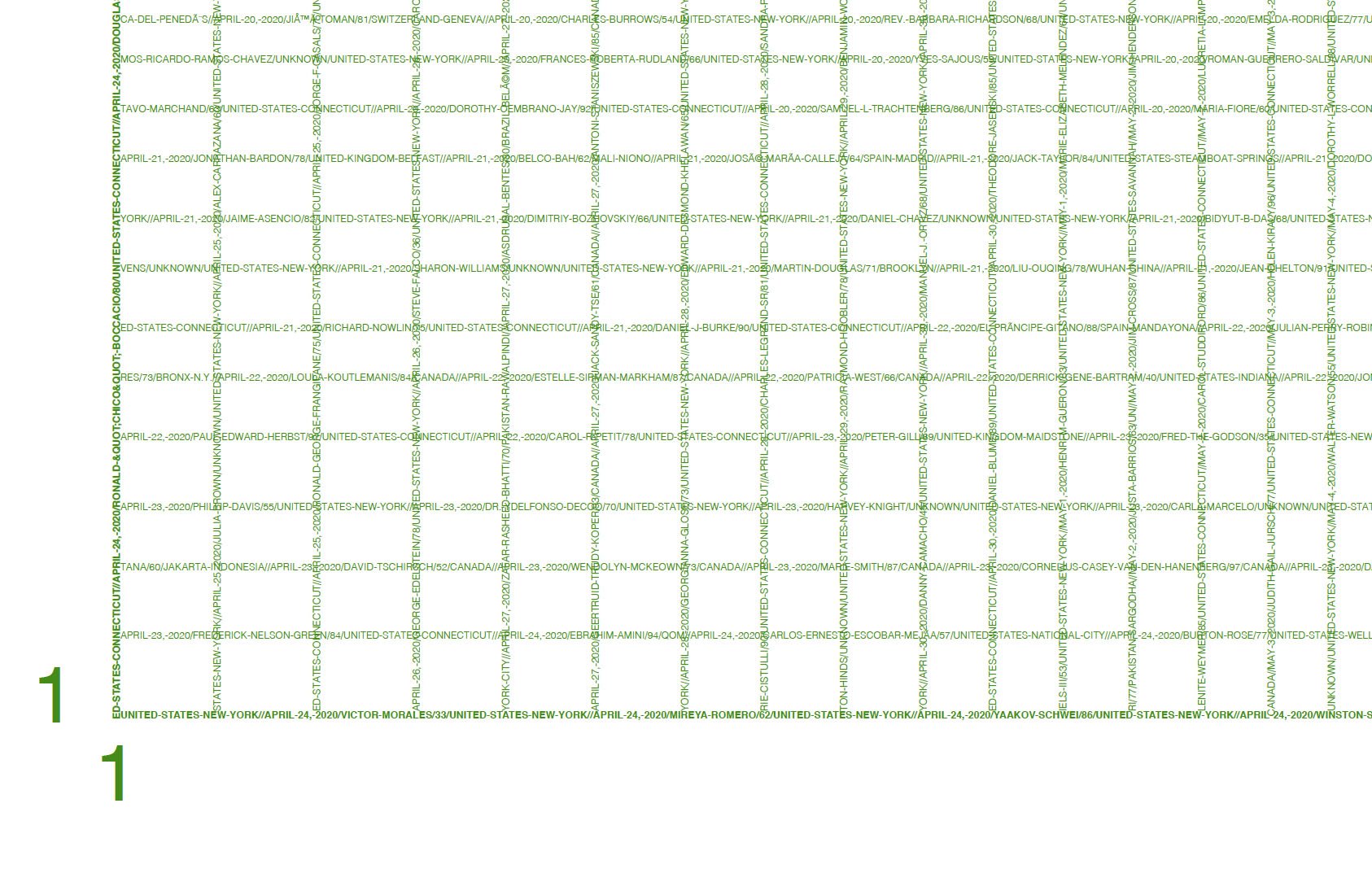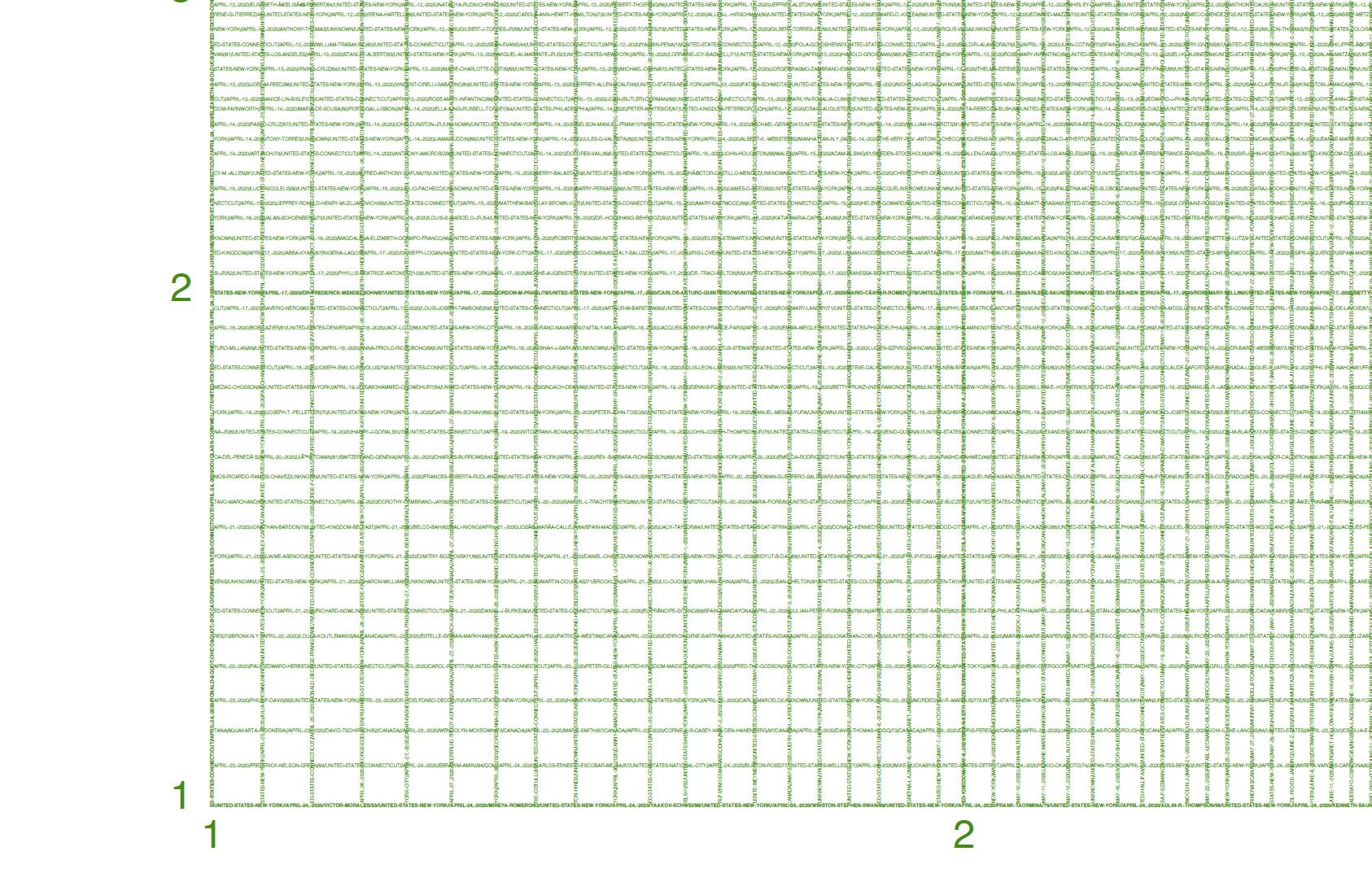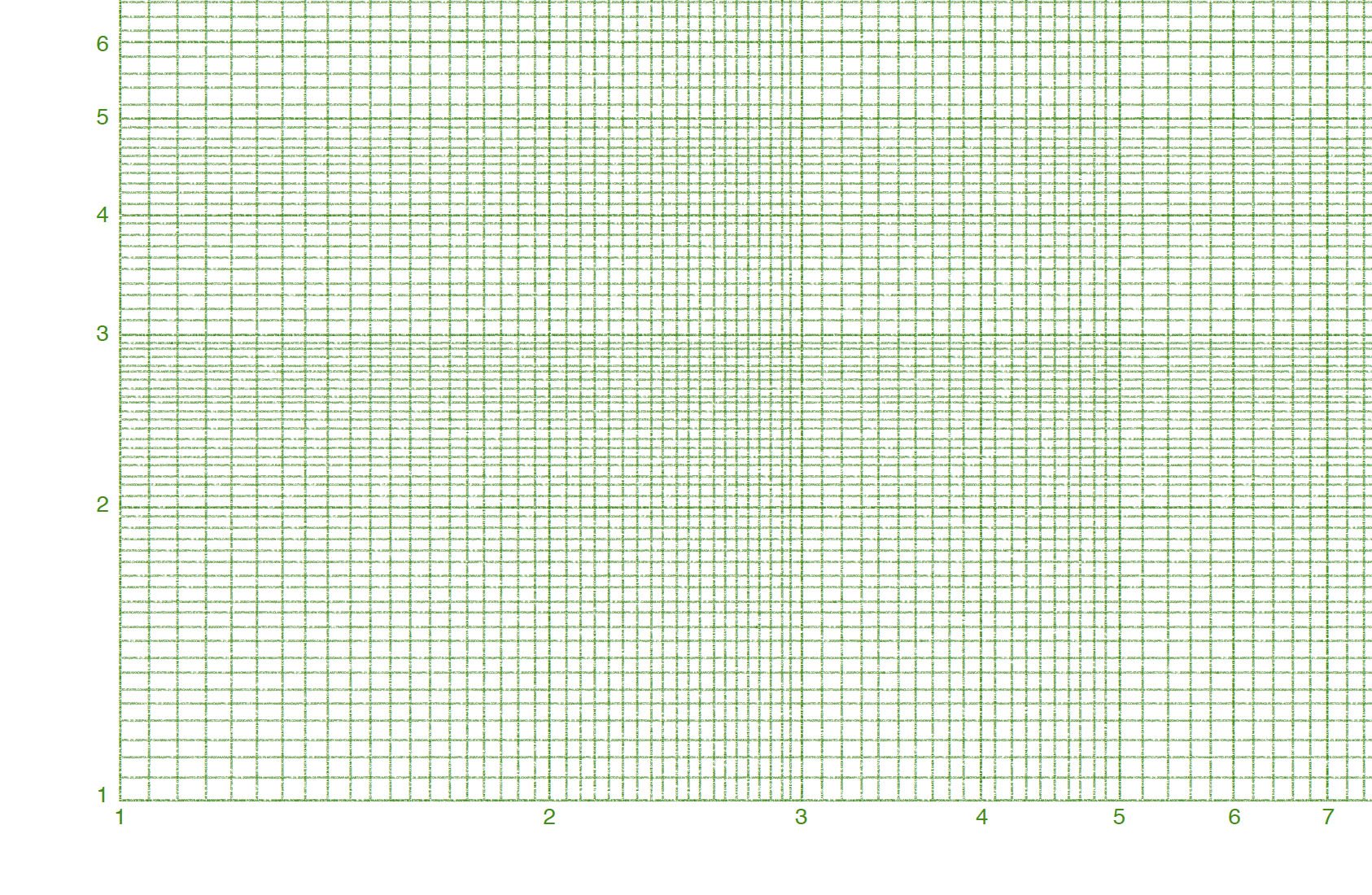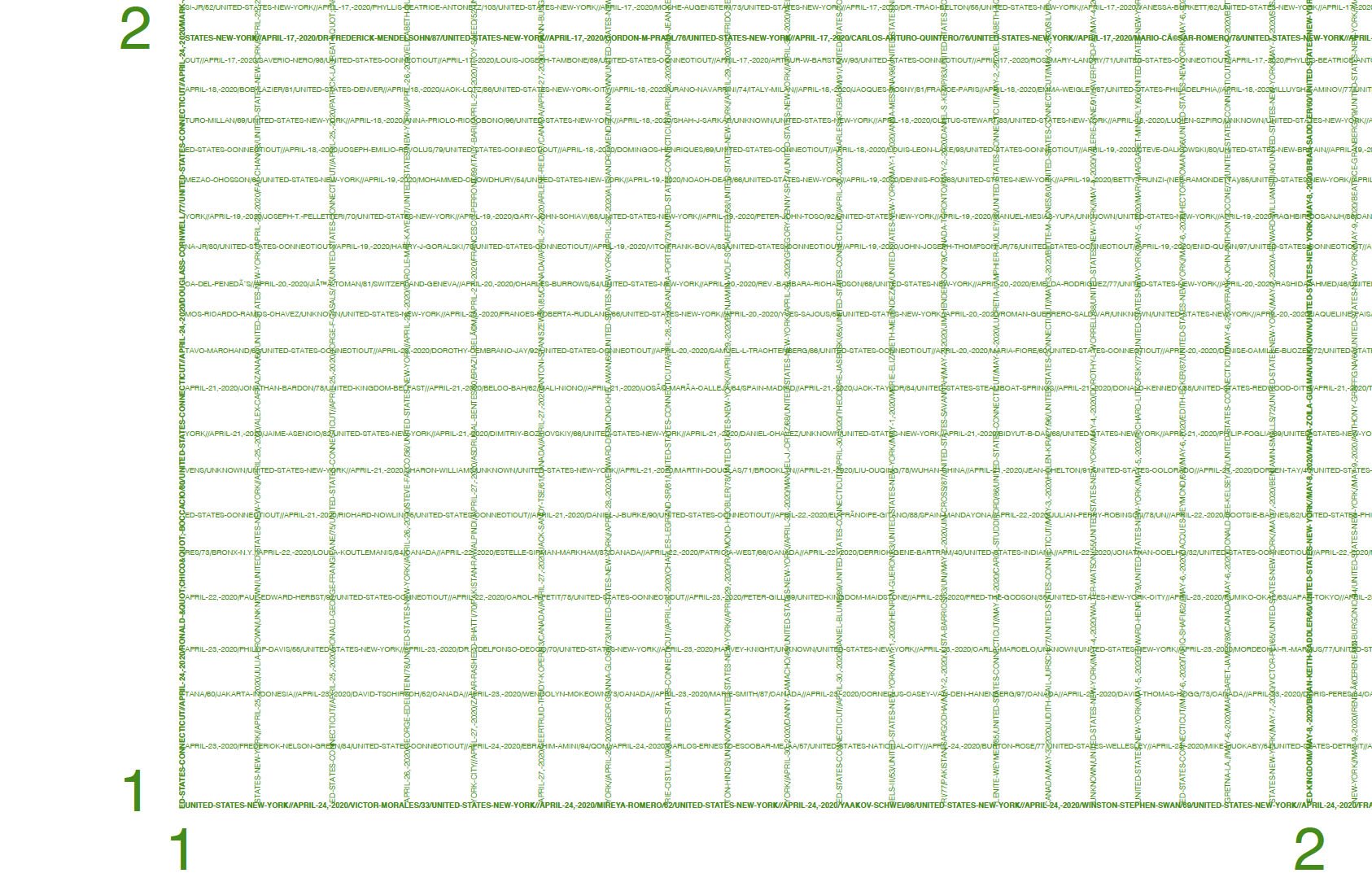LOG RULE
Matt Kenyon
This is one of two works from Kenyon being exhibited for the first time at brg.




Over the last two and half years of the Covid-19 pandemic, more than a million people in the US have died of the virus–more than the total number of American casualties in WWII, Vietnam, or the 1918 flu. When the number of deaths hit one million, the response was muted. At the time of this exhibition, there have been no major public memorials to acknowledge the sheer scale of what we’ve lost. There has also been little acknowledgement of how these losses have not fallen equally–how underrepresented and under-resourced communities, especially communities of color, have been far more vulnerable to the spread of Covid-19 than their wealthier and whiter neighbors. The stark and unequal suffering of Covid-19 should be a rallying cry against medical bias, environmental racism, and the exploitation of essential workers.
In a moment when people seem to want to forget the pandemic and move on with their daily lives, Log Rule offers a circulating memorial to the scale of our losses, in hopes that those who have suffered and those who continue to grieve for loved ones are not forgotten. This paper looks like the kind used to plot exponentially increasing data–like the increase in cases of a rapidly spreading disease. In a logarithmic plot like this one, each tick mark on the Y-axis represents a tenfold increase over the previous one: 1, then 10, then 100, then 1,000, then 10,000, and so on. But data at such scales often abstracts individual loss.
In Log Rule, the names, dates, and locations of those who have died are preserved in the microprinted text of the lines themselves. I offer sheets of the paper to anyone who would like to remember, in hopes that the tragic scale of losses we have faced from Covid-19 might allow us to move toward a more equitable future.

